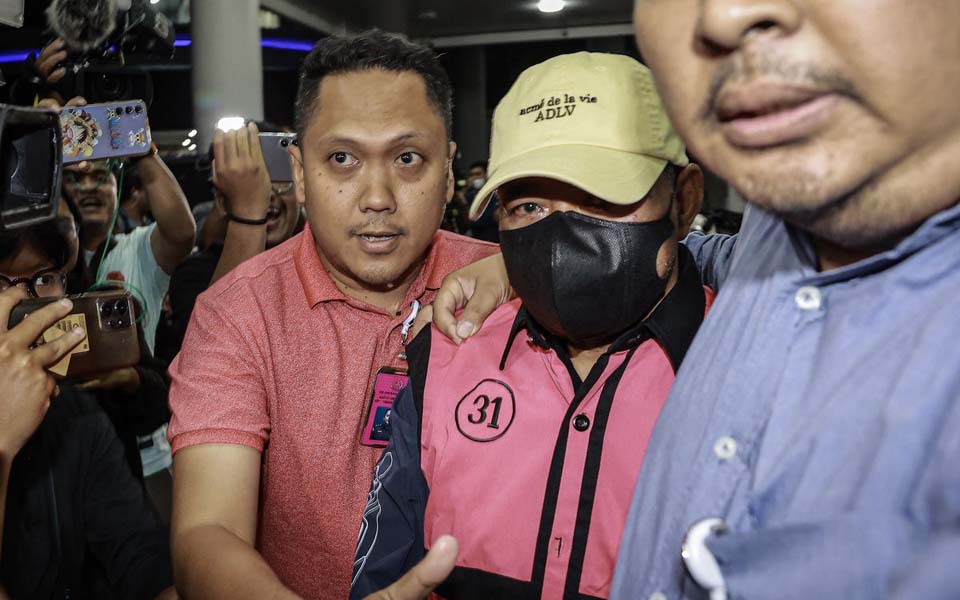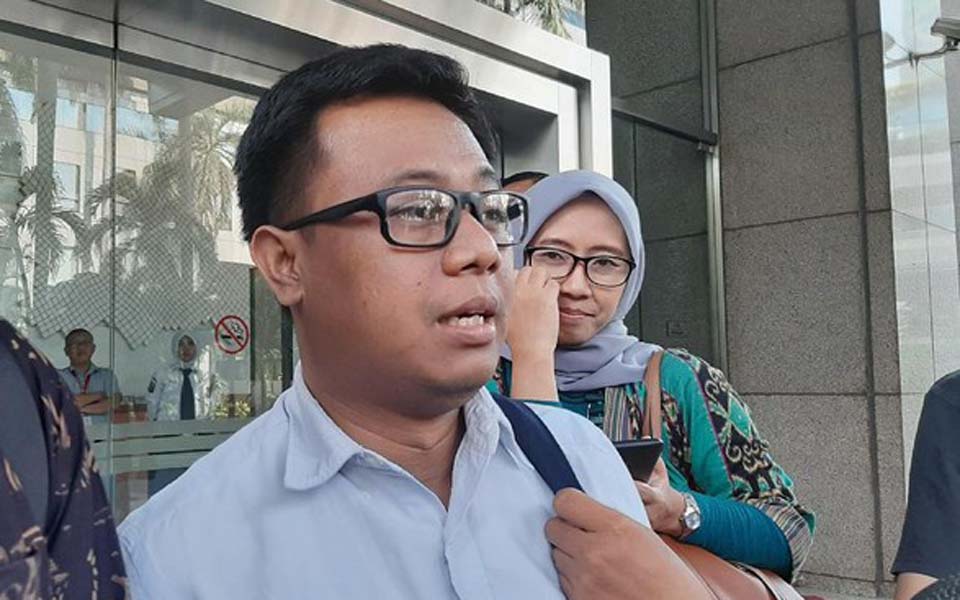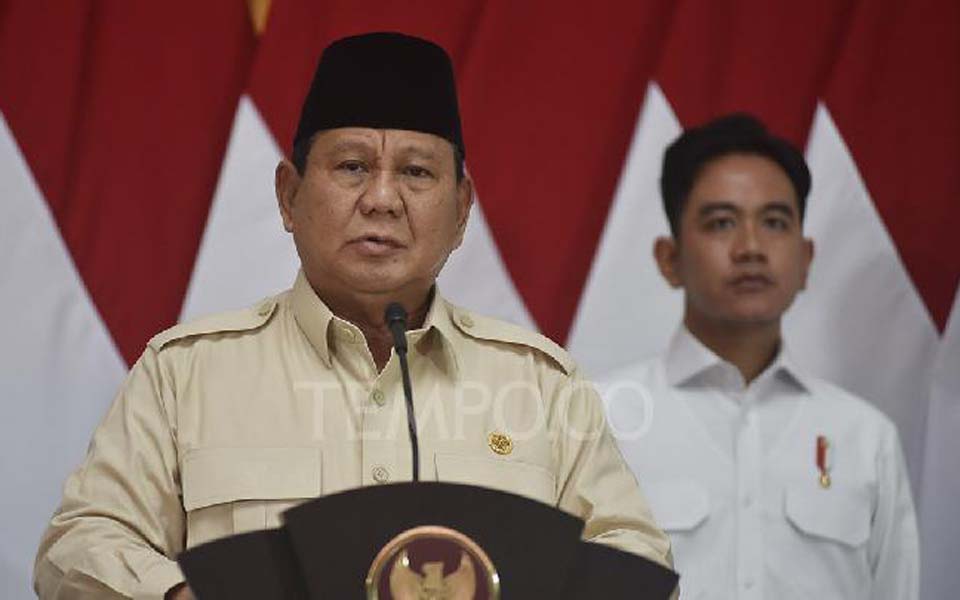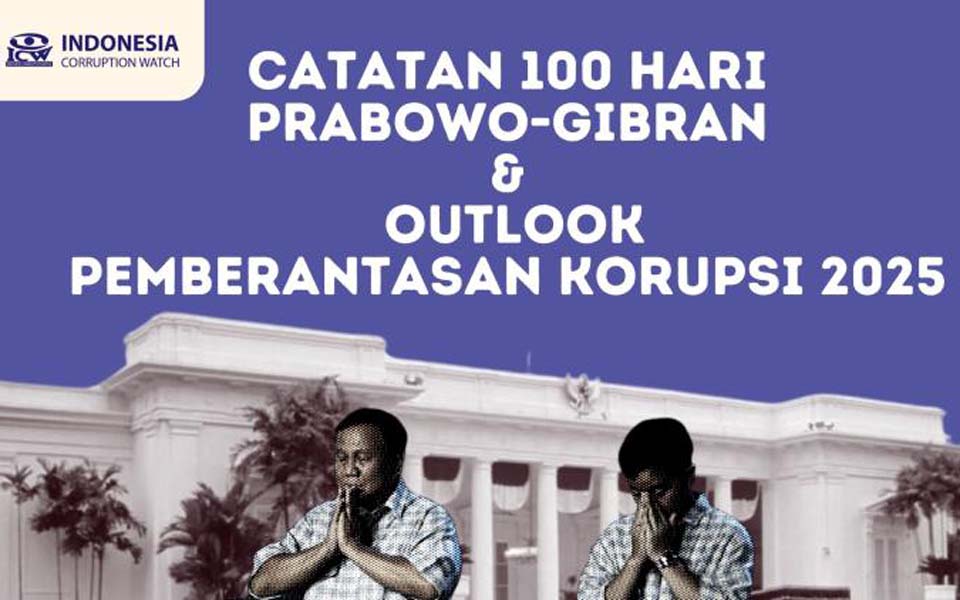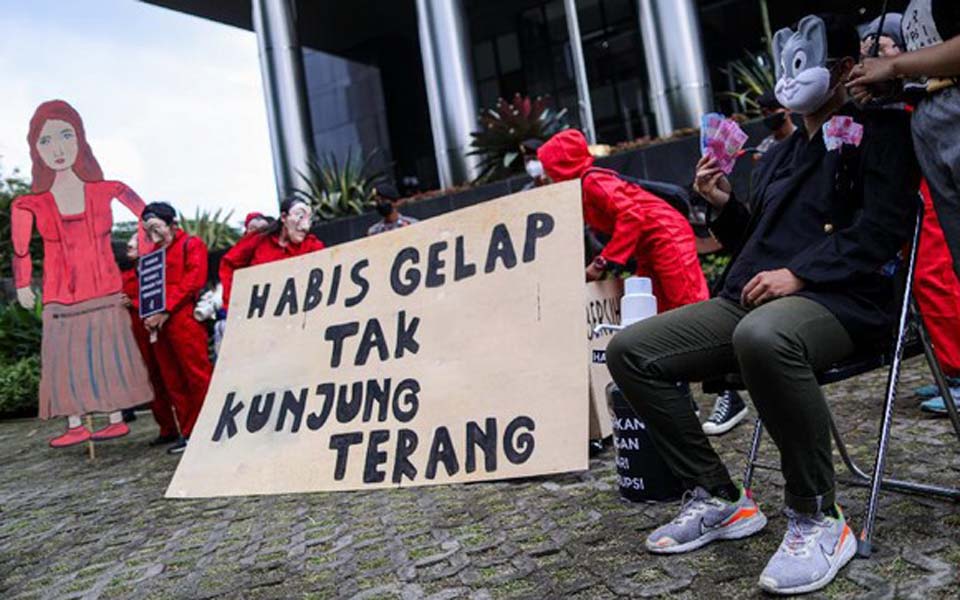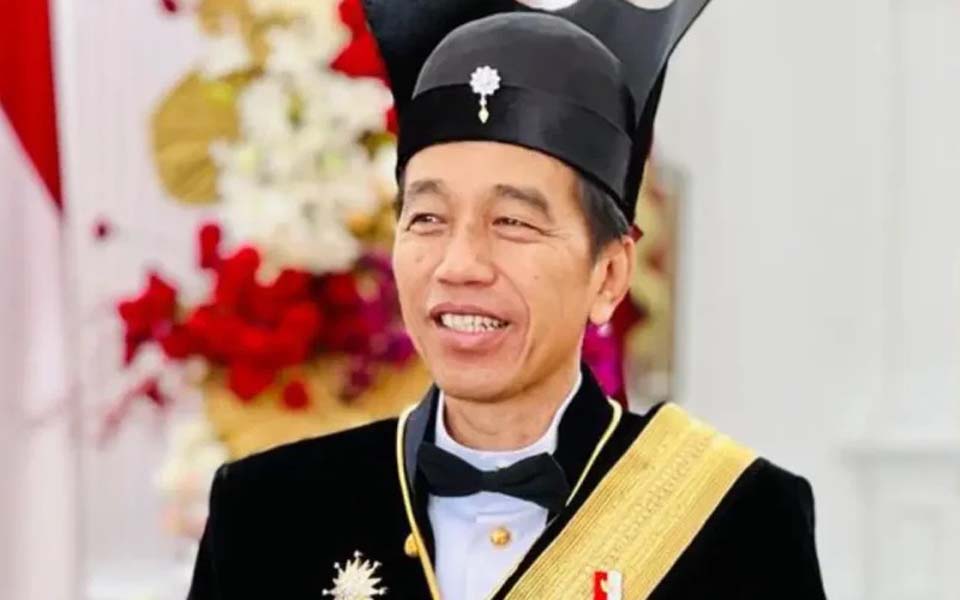Dian Dewi Purnamasari, Jakarta – The civil society coalition is determined not to normalize or condone the massive violations and fraud that took place during the 2024 elections.
They have discovered allegations of massive election violations, both at home and overseas. Data is currently being collected to be channeled through constitutional legal channels.
At a Safeguard the Elections, Safeguard the 2024 Vote, Election Fraud and Media Talk press conference in Jakarta on Saturday February 17, Novelist Okky Madasari, who also manages Media Talk, said that they conducted qualitative research in six provinces and 17 cities and regencies during the elections.
The six provinces were West Java, DKI Jakarta, Central Java, East Java, Bali and South Sulawesi. Research was carried out by observing, interviewing and documenting two days before voting day (H-2) and one day after (H+1).
"We saw that at many TPS (polling stations) and in areas that were being monitored, before the vote, village heads, neighborhood association heads of RT and RW, and hamlets, were already moving to ensure the victory of and mobilise voters to vote for one of the [presidential] candidates pairs, even legislative candidates. This was done both indirectly through a subtle approach or straight to the point with verbal threats", said Madasari.
Aside from this, the neighborhood heads were also seen actively distributing basic necessities, sarongs or cash within the scope of social aid (bansos) programs or personally. At several Islamic boarding schools (pesantren), it was also found that there were instructions, encouragement and even money given by the head of the pesantren to religious pupils with amounts ranging from hundreds of thousands of rupiah to 1 million rupiah per person to select a certain candidate pair.
“It was the intervention by neighborhood association heads and local authorities that we found to be one of the key factors for voters in deciding on their choice. Most of these TPS were won by candidate pair number 2, Prabowo Subianto-Gibran Rakabuming Raka", said Madasari.
When asked the reason why they wanted to vote for this candidate pair, a number of reasons were put forward. Starting from feeling pity for Prabowo having repeatedly lost in earlier presidential election contestations, wanting free milk and school lunches (one of Prabowo's election pledges), because there were instructions from above, fearing that social aid programs would not be continued, seeing a certain figure as gemoy (cute, the public image put forward by Prabowo), to the presence of President Joko "Jokowi" Widodo's son Rakabuming Raka.
"It turns out that Jokowi's kid really played a part in this election this time round", said Madasari.
Another finding was that at several polling stations (TPS), the ballot papers for the presidential election with a picture of candidate number 2 on them had already been marked.
The Coalition is still investigating whether this only happened at certain polling stations or whether it was systematic and massive. There was also a video of a number of people marking presidential election ballot papers for candidate pair number 2 before the vote took place.
Overseas findings
Migrant Care Executive Director Wahyu Susilo explained that they also conducted election monitoring overseas in a number of regions. Migrant Care is accredited as an election observer with the Elections Supervisory Board (Bawaslu).
There were significant findings during election monitoring abroad which were held early in Kuala Lumpur, Malaysia, where thousands of people flocked and crammed into integrated polling stations at the Kuala Lumpur WTC.
"In Malaysia, there were contestants who campaigned on voting day, namely Uya Kuya in front of the Kuala Lumpur WTC in front of people who are registering at the TPS. We will report this to Bawaslu", Susilo said.
In Hong Kong there are 70,000 people who were unable to exercise their right to vote because there was a sudden change in the voting method from voting at the TPS to a postal vote. This gave rise to chaos.
The change in the voting method in Hong Kong was mostly unknown to voters who had previously received an invitation to vote at the TPS, so they flocked to the Indonesian Consulate General (KJRI) to vote.
Out of 2,390 people, only around 753 were able to exercise their right to vote or around 25 percent of the Final Voter List (DPT). Susilo said he is worried that there was an element of intent to prevent migrant workers from using their voting rights.
"We also found inaccuracies in election times in the organisation of elections in regions with a large voter base. In a number of countries, elections were actually carried out ahead of Chinese New Year which makes voter participation low", Susilo said.
Confusion with the overseas DPT also happened. In Johor Bahru (Malaysia) and New York (United States) there was still a lot of duplicate voter data that had the potential to inflate the vote.
Another finding by Migrant Care was alleged vote inflation in the electoral district (Dapil) of DKI Jakarta II. The group found that the total number of votes garnered by candidates in the Central Jakarta and South Jakarta electoral districts was 8,279,233.
According to Susilo, there was alleged vote inflation of up to 190 percent in these electoral districts because the total number of votes should only have been around 4.3 million.
Pork barrel politics
Feri Amsari from kecuranganpemilu.com (Election Fraud) added that fraud not only occurred on voting day but could even be seen earlier during the appointment of acting regional heads.
In addition to this, there was the politicisation of social aid and money politics, which according to Amsari amounted to pork barrel politics. Simply put, pork barrel politics is giving sugar to certain parties so they want to support President Widodo's policies.
"Including salary increase incentives and allowances for election organisers, both at the KPU [General Elections Commission], Bawaslu, ASN [state civil servants] as well as the TNI [Indonesian military] and Polri [Indonesian police], this isn't healthy for democracy because these policies will benefit the children of incumbents who have stepped forward in the presidential election contestation. This is also not good for the process of organising the country", said Amsari.
He also mapped out three types of state administrators, ranging from ministers, to presidents and regional heads that were suspected of having a conflict of interest and utilising state facilities and the budget to support one of the presidential candidate pairs.
In terms of election organisers, they ignored procedural aspects because they immediately implemented Constitutional Court (MK) ruling number 90 which gave a red carpet for the nomination of Gibran Rakabuming Raka, Widodo's eldest son, to become a vice presidential candidate.
In fact, the ruling was an ethical violation and a conflict of interest because the Constitutional Court chief justice, Anwar Usman, Rakabuming Raka's uncle, took part in hearing the case. The KPU regulation that was used to confirm Rakabuming Raka as a candidate was updated retroactively.
"We have already mapped out these patterns of cheating. But, sorry we can't convey them in detail because it will be used as material for a challenge at the MK", said Amsari.
Depends on the judges
Separately, vice president candidate number 3, former Security Minister Mahfud MD, after attending the inauguration of professors at the University of Indonesia (UI) in Depok, West Java, explained that when he was the chief justice of the Constitutional Court he once ruled to annul an election result by ordering a revote or the full cancellation of the election result. The impact of the ruling was that the winners were disqualified and the losers declared the winner.
"So, a reelection is possible. For example, the results of the 2008 East Java election of regional heads when Khofifah was declared to have been defeated by Soekarwo, we canceled the result and it was repeated. Second, the results of the South Bengkulu elections, the party that won was disqualified and the runner up came out on top. Third, the results of the West Waringin City election of regional heads which were also rerun", said Mahfud.
Mahfud explained that he was the judge in 2008 when the Constitutional Court ruled on an election dispute the East Java regional election. That was the first time that the term structured, systematic and massive (TSM) violations appeared in a court verdict in Indonesia. TSM violations have since become jurisprudence. Now, if there are parties who feel that there is fraud that was TSM in the elections this time round, as long as there is strong evidence, the judge could hand down a similar verdict.
"Depending on whether the judge has evidence or not. Or, if you already have evidence, whether or not they have the courage to accept it or not", said Mahfud.
He also mentioned that whatever the result of the presidential election, he will continue to fight for democracy and justice. According to Mahfud, the path of struggle for democracy and justice is not just through elections. Elections are only one expressions of democracy.
"I did not have any position in 2014-2016, but still productively struggled for democracy and law enforcement", he said.
Mahfud holds the view that the civil society movement and campuses are precisely the source of the democratic movement and changes from authoritarianism towards democracy. History has taught that if democracy is blocked, democracy will always open its own road. "This is our history as well as the history of the world", he said.
[Translated by James Balowski. The original title of the article was "Koalisi Masyarakat Sipil Temukan Indikasi Awal Kecurangan Pemilu".]






